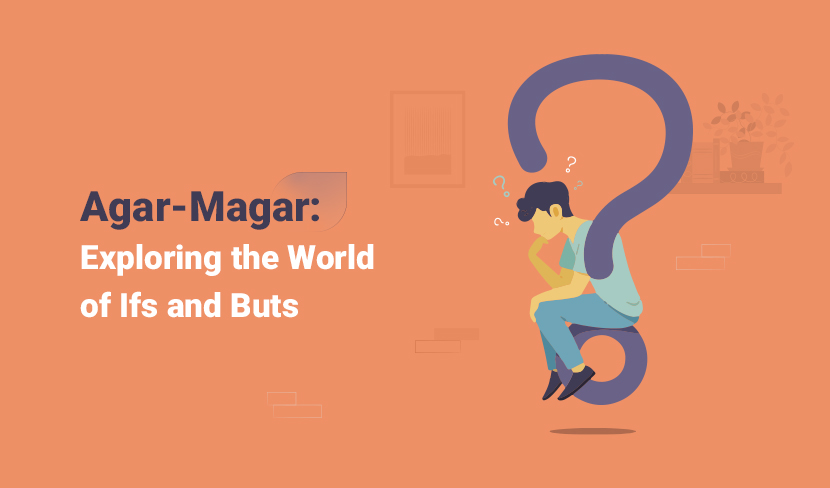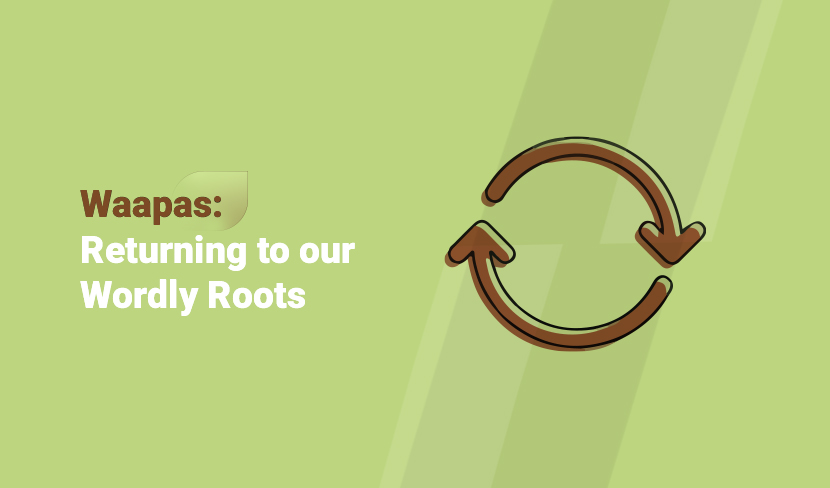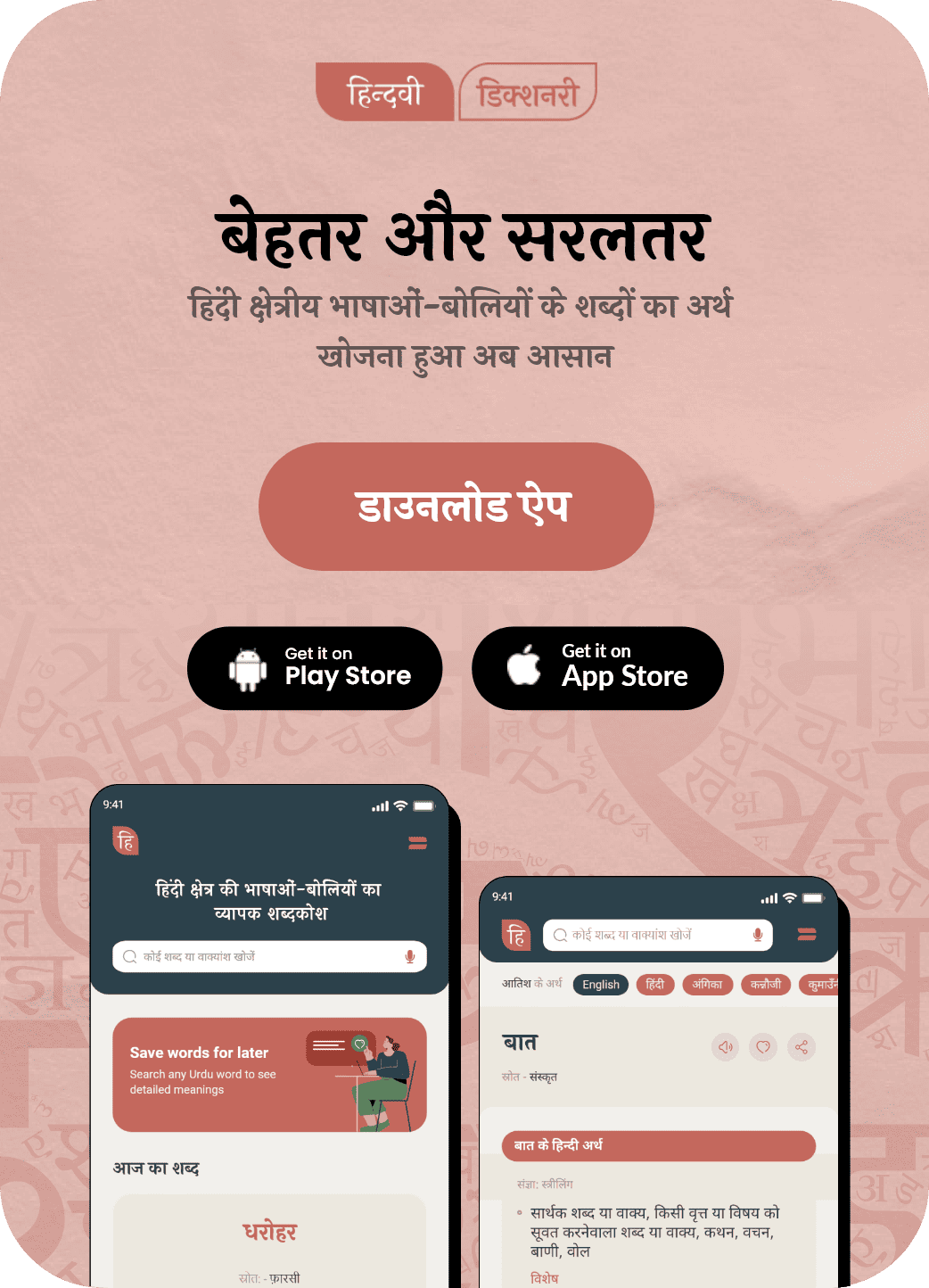नवीनतम ब्लॉग

- by Atifa Haroon
- ___
- 17 February 2023
Kalima-e-Bahaar: Beautiful Urdu Words Related to Spring
We are almost reaching the end of chilly winters and the wait for spring has filled many hearts with excitement already. Colourful flowers, soothing winds and the hustle-bustle of spring bring about a wave of warmth and joy. And for this very essence ...continue reading
और पढ़िए
- by Atifa Haroon
- ___
- 06 February 2023
From Wilaayaah to Blighty: The Journey of a Word Across 4 Languages
Travel stories are one of the most loved genres amongst people. From young children to grown-ups, everyone enjoys long tales of both real and fictional travels. But, have you ever heard stories about the journey of a word ...continue reading
और पढ़िए
- by Atifa Haroon
- ___
- 31 January 2023
Haal Kaisa Hai Janaab Ka: Asking About Wellbeing in Urdu
The world of how are you and how are things in Urdu is an entire category of conversation, with a dedicated vocabulary. This category is known as Mizaaj-Pursi which refers to enquiring about one’s wellbeing, and its response ...continue reading
और पढ़िए
- by Rajat Kumar
- ___
- 27 October 2022
Diwan: Rational Word with Irrational Meanings
If you’re here early, you know it’s the season of festivities, celebrating different Indian Demi-Gods and -Goddesses. If celebration is something to be taken as a precursor of things to come, you’d sure have caught the whiff that Jashn-e-Rekhta is ...continue reading
और पढ़िए
- by Rajat Kumar
- ___
- 19 September 2022
Izafat: Making Sense of Knotty Grammar
Grammar can be aesthetically pleasing. On that bold claim, I begin to take to one of Urdu grammar’s most charming facets, the Izafat. From ‘Tah-e-Dil se Shukriya’ to ‘Chashm-e-Bad-Door’, we come across the Izafat several times in our Roz-Marra. But ...continue reading
और पढ़िए
- by Rajat Kumar
- ___
- 26 August 2022
Haan: All about Here, There, and Everywhere!
Words morph, pronunciations whirl, expressions change, and meanings shift, but rarely do we come across utterances that have been so drastically revamped that modern-day speakers need a reintroduction to what they originally sounded like ...continue reading
और पढ़िए
- by Rajat Kumar
- ___
- 10 August 2022
Agar-Magar: Exploring the World of Ifs and Buts
Ifs and buts create the gray areas in our speech that shine brighter than all other colors produced by all of language. Grammatically a conjunction, or Harf-e-Atf as it’s called in Urdu, this one set of words is just an inevitable part of our vocab. ...continue reading
और पढ़िए
- by Rajat Kumar
- ___
- 01 August 2022
Waapas: Returning to our Wordly Roots
A word is often meshed with so many warps and wefts (Taana-Baana) that we barely ever realize how nuanced the fabric of language is. But once we do, it seems like nothing short of a fit! On the back of this allegorical intro, let’s return to our tra ...continue reading
और पढ़िए
- by Rajat Kumar
- ___
- 20 June 2022
Lahja Vs Lahza - Know the Difference!
A great many words in our everyday rhetoric are mispronounced, and no better testament to that exists besides the ‘J’-for-‘Z’ confusion. Take Zamaana spoken as Jamaana, Zor as Jor, Marzi as Marji, and so on ...continue reading
और पढ़िए
- by Rajat Kumar
- ___
- 16 June 2022
Waghaira: Etymology, Usage, Waghaira Waghaira!
Words often conceal more than they convey. Today, we’ll be unpicking, unpacking, and more, a word we use countless times every day, but are only getting to know now. Waghaira, our very own etcetera, is a word we use here, there, and everywhere. It’s ...continue reading
और पढ़िएसब्सक्राइब कीजिए
आपको नियमित अपडेट भेजने के अलावा अन्य किसी भी उद्देश्य के लिए आपके ई-मेल का उपयोग नहीं किया जाएगा।
बेहतर और सरल अनुभव के लिए हिन्दवी डिक्शनरी ऐप
डाउनलोड कीजिएक्या आप वास्तव में इन प्रविष्टियों को हटा रहे हैं? इन्हें पुन: पूर्ववत् करना संभव नहीं होगा


